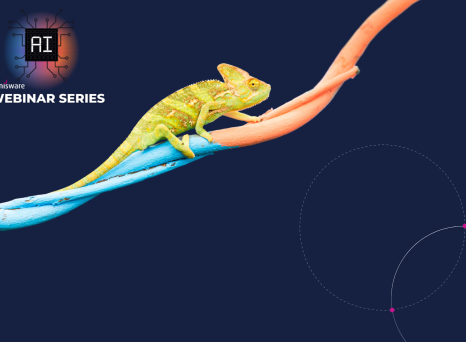Resistance is Futile
In the wonderful ‘Hitchhiker's Guide to the Galaxy' series (a trilogy in five parts) by Douglas Adams the Vogons* ' battle-cry, and counter-argument to dissent, is "resistance is useless!", and in the reality of AI and project management, I feel that a similar declaration is applicable, but with a little less of the mindless following orders mindset behind it.
It is good to know that most project managements seem to not be adopting the Vogon approach of "resistance is useless!" but are open minded about what AI might be able to offer them whilst overseeing project delivery.
The ‘Global Survey on Artificial Intelligence Impact in Project Management 2020' conducted by PwC Romania and the International Project Management Association (IPMA**) found that “52% of project management professionals see the emergence of Digital Assistant role and the adoption of Artificial Intelligence in their profession in the next five years. The roles most likely to be taken over by AI in project management over the next five years are Project manager assistant (52%) and Project manager adviser (44%). More than half of project managers estimate an acceleration of the digitization process in the business environment by implementing artificial intelligence (AI) solutions, from digital assistants to standalone solutions that produce profound changes in the way we perceive and use technology.”
The fact that you are reading this article already indicates that you are similarly open minded and ready to learn more about this revolution heading your way in the next few years.
The Practical Application of AI by the 'Smart' PM
It has always been essential for project leaders to have strong communication, negotiation skills and, more popularly accepted these days, emotional intelligence to inspire teams and lead them in a collaboratively productive manner. Project Management has always, and will always, be about ‘people'.
In the 2021 ‘Pulse of the Profession' report' from the Project Management Institue (PMI), the most cited new skills for organisations were soft skills at 45%, and this is as true for the project management professional as any other business role, perhaps even more so as the success of each project manager is (almost) wholly dependent on the people in their teams.
As to how and where this AI impact will be most productive the report declared “The three main reasons for adopting AI technologies in project management, indicated by respondents, are: increased productivity (53%), improved decisions (52%) and increased performance (51%).”
According to Stobierski, “By automating low value-add tasks, project managers can focus their efforts and energy on completing tasks that most greatly benefit their organization, allowing them to effect greater change and increase the likelihood of achieving the strategic goals of each project.”
As ‘agents of change' then it should come as no real surprise that project managers should be open to change in their own profession and business world, which is just as well as the rise of AI in project management will bring about a huge change I believe.
That said I don't envisage a meteor landing dinosaur like extinction of the species known as ‘project managers' as a result but rather the absorption of many of the current day to day tasks that project managers undertake and a movement to more people focused time. The ‘smart' project manager will optimise this opportunity to invest in their teams and their people and free themselves up from the day-to-day drudgery of report production and analysis of data.
Projects were always about people but with the power of AI, the project manager will be able to really engage, inspire and lead the people on their teams.
The Evolving Element
Alongside these people (or soft) skills, the 2021 Pulse report from PMI highlights the importance of technical skills in leveraging the capacity of this new technology,“Capturing the value of AI isn't just about rolling out a bunch of new technologies. It takes the right people with the right skills and the right attitude”.
PwC recommends that we consider the following advice:
“AI acts as a project management's ‘virtual partner'; project leaders must have an innovative mindset and customise their knowledge to drive this digital transformation forward. Having strong ‘digital know-how' and data science skills is key, alongside security and privacy knowledge.”
PMI talks about a need for a high Project Management Technology Quotient (PMTQ), to be successful in this new AI project world. You can read more on this in the PMI publication ‘The Future of Work: Leading the Way With PMTQ'.
In the future most of a project manager's tasks, alongside the people leadership role, will be around problem solving and dealing with critical issues as AI ramps up in our domain and provides rapid insights and recommendations, at a speed and level that is not felt these days. This will drive a different way of working and an adjusted mindset to accept AI guidance and deliver ever more complex projects.
We can embrace the future (as opposed to trying to resist and fail) but we will all have to adjust our thinking somewhat to be successful in the adoption of AI into project management.
It may be hard for an egg to turn into a bird: it would be a jolly sight harder for it to learn to fly while remaining an egg
Be part of the rise (and join the revolution)
Check out my recent webinar on AI in the Project Management world to learn all you need to know about Artificial Intelligence and what this will offer your profession in the coming years.
We explored the history of AI and considered why AI is both brilliant and stupid at the same time.
We looked at the four categories of AI that apply to our world of project management – project management process automation, project assistant style chatbots, project intelligence through machine learning, and the future state of the autonomous project manager.
This webinar will offer you a better understanding of the state of AI in project management and help you be able to ask the really important questions of yourself, and your organisation, that need asking in order to be truly ready for the revolution in project management.

